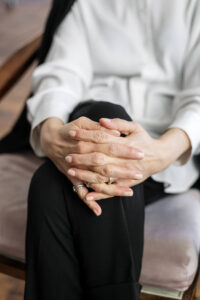
Impact of Socioeconomic Status on Overcoming Addiction Stigma
Understanding the Intersection: Socioeconomic Status and Addiction
Socioeconomic status is a significant factor that influences drug addiction. It affects access to resources, exposure to stressors, and opportunities for intervention. When you’re from a disadvantaged background, these factors may contribute to a heightened risk of developing addiction issues. Additionally, lower socioeconomic status often leads to reduced access to quality treatment, creating a cycle that is hard to break.
Step 1: Acknowledge the Influence of Socioeconomic Status
The first step in addressing this issue is acknowledging the role socioeconomic status plays in drug addiction. Understand that your socioeconomic circumstances can contribute to the complexity of your addiction but do not determine your worth or potential for recovery.
Step 2: Overcoming the Stigma and Bias
Stigma and bias often form significant barriers to seeking help. Shame, guilt, and fear of judgment can make you feel isolated and mistrusted, hindering your journey to recovery. It’s crucial to realise that these feelings are not reflections of your character but are societal constructs that need to be challenged and changed.
Step 3: Seek Support Within Your Means
Identify resources that are accessible and suitable to your economic situation. Changes Rehab, for instance, offers a variety of treatment options that cater to diverse needs and financial capabilities.
An Unusual Case Study: Thandi’s Journey
Thandi, a young woman from Johannesburg, struggled with substance abuse for years. Born into a low-income family, she faced numerous challenges associated with her socioeconomic status. However, Thandi didn’t let her circumstances define her. She acknowledged the impact of her socioeconomic status and fought against the stigma and bias she encountered.
Thandi worked closely with Changes Rehab to create an affordable treatment plan that suited her unique circumstances. She leveraged community resources, including support groups and free educational materials, to complement her recovery journey. Despite facing numerous obstacles, Thandi demonstrated that with resilience, determination, and the right support, recovery is possible for everyone, regardless of their socioeconomic status.
FAQs:
- How does socioeconomic status impact drug addiction? Socioeconomic status can influence factors such as stress levels, access to drugs, and availability of resources for treatment, thus affecting drug addiction.
- What can be done to overcome the stigma and bias associated with addiction? Education, open conversations, and advocacy are essential to combating stigma and bias.
- Does Changes Rehab offer treatment options for individuals from all socioeconomic backgrounds? Yes, Changes Rehab is committed to providing quality treatment options that cater to individuals from diverse socioeconomic backgrounds.
- How can feelings of shame and guilt prevent individuals from seeking treatment? Shame and guilt can lead to feelings of unworthiness and fear of judgment, discouraging individuals from seeking help.
- What resources are available for individuals struggling with addiction in Johannesburg? Numerous resources are available, including rehabilitation centres like Changes Rehab, support groups, and community outreach programmes.
As we continue to make strides in addressing the impact of socioeconomic status on drug addiction, and overcoming stigma and bias, we can anticipate profound shifts in how society understands and addresses addiction. This is a future that can impact you directly. 
Foremost, an improved understanding of socioeconomic factors will lead to more nuanced, comprehensive addiction treatment strategies. Recognising that socioeconomic status shapes one’s experience with addiction, the treatment approaches are likely to be more personalised, considering your individual circumstances. This means your treatment plan can be more responsive and effective, providing support that’s truly tailored to your needs.
Overcoming Stigma & Bias
Overcoming this could significantly transform societal attitudes towards addiction. If you’re struggling with addiction, a future with less stigma means you’re likely to encounter more understanding and empathy, from your community and potentially from yourself. This could encourage you to seek help earlier, improving your recovery prospects.
Furthermore, as stigma decreases, there is potential for more resources to be allocated towards addiction treatment, especially for lower socioeconomic groups. This can open up opportunities for you to access high-quality treatment services like those offered by Changes Rehab, regardless of your financial circumstances.
With more discussion around these issues, the psychological barriers of shame, guilt, and mistrust may start to dissolve, making it easier for you to reach out for support. This opens a path for more open conversations about addiction, making it easier for you to share your experiences, seek help when needed, and foster connections with others on a similar journey.
Future Holds a Lot of Promise
By continuing to address the impact of socioeconomic status on drug addiction, and by relentlessly working to overcome stigma and bias, we’re moving towards a future where recovery is more accessible and supported – a future where you are never alone in your journey.
Tackling the impact of socioeconomic status on addiction is a complex challenge that involves dismantling stigmas, addressing biases, and promoting inclusive access to support and treatment. However, by acknowledging these factors and taking proactive steps towards recovery, you can overcome these challenges and move towards a healthier future.
Regarding socioeconomic status, remember that resources and support are available to you, regardless of your circumstances. Changes Rehab and similar organisations are dedicated to providing accessible, effective treatment options for all. By seeking support, you not only take control of your recovery but also contribute to the societal recognition of addiction treatment as a necessary and universal right.
Remember that your journey of recovery is deeply personal and unique. It’s not about following a rigid set of expectations or trying to fit into a certain mould. It’s about finding what works for you, what aligns with your values, and what will best support you in leading a fulfilling, substance-free life.
As you navigate this journey, may you remember the words of Nelson Mandela, “The greatest glory in living lies not in never falling, but in rising every time we fall.” In your fight against addiction, every step you take, every obstacle you overcome, every time you rise again, you demonstrate your incredible strength and resilience. Your journey matters, your experiences are valid, and your recovery is possible.

